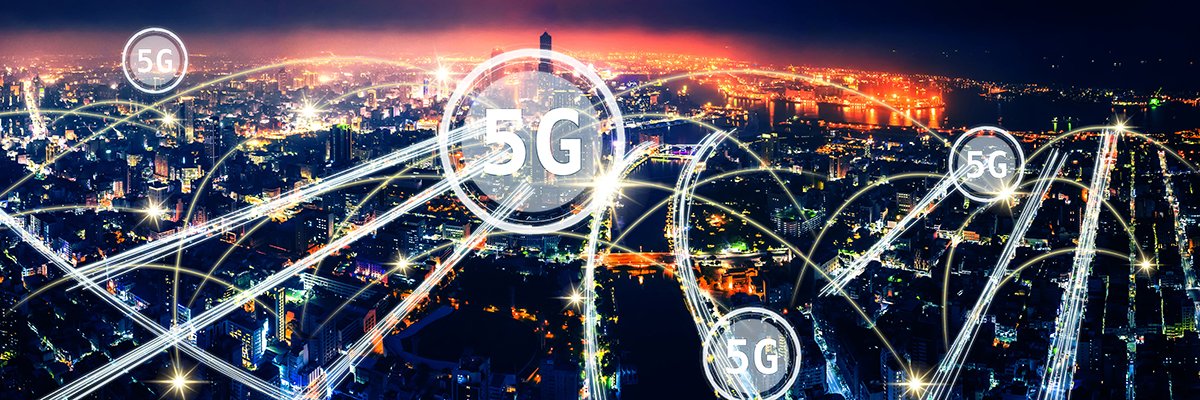Vodafone and Verizon have embarked on programmes to embed Amazon Web Services (AWS) Wavelength technology in rolling out distributed multi-access edge computing (MEC) on 5G networks to bring customers and key applications closer together.
Building on a relationship first announced in 2019, AWS and Vodafone Business are working together to further accelerate 5G application development through a new incubation scheme, Vodafone Business Edge Innovation Program.
The three-month programme is designed to gives startups, ISVs, businesses and freelance developers exclusive access to edge computing training and expert support from Vodafone and AWS to help them develop, test and deploy a proof-of-concept (PoC) 5G application on AWS Wavelength and Vodafone 5G network.
Vodafone and AWS will select up to 20 projects from submitted proposals. These projects will receive exclusive access to 5G devices, technical support and expert help develop a fully fledged pilot deployment in the UK or Germany.
Technical training and hands-on labs start in January, and participants will receive AWS promotional credits to offset the cost of cloud services they would use to train and develop a PoC application. In the meantime, Vodafone Business has deployed pilot programmes with AWS Wavelength on the Vodafone 5G network edge to help developers build applications that require low-latency connectivity to mobile devices and end-users.
By embedding AWS compute and storage services at the edge of Vodafone Business’s 4G and 5G network, the two companies claim to be enabling developers to build “innovative” applications “easily” on the AWS infrastructure and deploy them at the network node closest to their end-users. This, they say, will help developers serve use cases such as change monitoring and facility security, smart cars, smart cities, healthcare and live interactive video streaming.
“Working with AWS on edge computing means we are making it simpler for both independent software vendors and our customers to experiment with this emerging technology,” said Vinod Kumar, CEO of Vodafone Business. “We are doing this by offering an incubation space to create and test applications that we can then industrialise and scale. We are already seeing some innovative applications that provide positive business outcomes.”
Among the companies already involved in the programme is San Francisco-based Dedrone, which provides airspace security technology to protect people, property and information against unauthorised and malicious drone activity. Its software integrates different types of sensors and video analytics so that organisations can immediately detect when a drone is in and around their assets and act quickly.
The company has now integrated its airspace security platform into Vodafone Business’s distributed multi-access edge computing powered by AWS Wavelength. This is said to allow rapid drone detection, enabling quick installation and keeping facilities and people safer. “Sites of critical importance can now upgrade their security programmes to protect their lower airspace,” it said.
With the launch of availability in Las Vegas, US businesses and developers can now build and deploy applications using Verizon’s 5G Edge systems with AWS Wavelength in eight locations across the country. Again, building on a partnership from last year, the operator and AWS have now launched, in addition to Las Vegas, MEC capabilities in Atlanta, the San Francisco Bay Area, Boston, Dallas, Miami, New York and Washington DC. There are plans to add two more cities by the year end.
The two companies say their partnership brings AWS compute and storage services to the edge of Verizon’s 5G ultra wideband network, allowing innovators to develop applications that require ultra-low latency and responsiveness enabled by 5G. With these capabilities, developers can build and deliver enhanced experiences and serve performance-critical use cases that take advantage of storage and processing power closer to 5G mobile users.
“By leveraging the powerful combination of Verizon 5G Edge and AWS Wavelength, developers can deliver a wide range of transformative, latency-sensitive use cases like automated robotic systems in manufacturing facilities and smart cars and cities,” said Tami Erwin, CEO of Verizon Business. “We already have customers today creating exciting new applications in industries ranging from healthcare to sports and we can’t wait to see the next game-changing app that will be built on 5G and MEC.”













